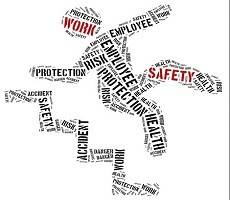February 25, 2015
Leading role for property sector in promoting ‘green infrastructure’ says UK-GBC
 The property industry can play a leading role in protecting and enhancing national features and biodiversity. That is according to a new report by the UK Green Building Council Task Group which presents the business case for “green infrastructure”, the term used to describe natural and semi-natural features ranging from street trees and roof gardens to parks and woodland. Demystifying Green Infrastructure finds that introducing green infrastructure into the built environment offers a range of business opportunities, including an increase in the value of land and property, as well as social and environmental benefits. Aimed primarily at developers and occupiers, the report also identifies risks from failing to incorporate adequate green infrastructure into projects, such as delays in planning, increased costs and reputational damage.
The property industry can play a leading role in protecting and enhancing national features and biodiversity. That is according to a new report by the UK Green Building Council Task Group which presents the business case for “green infrastructure”, the term used to describe natural and semi-natural features ranging from street trees and roof gardens to parks and woodland. Demystifying Green Infrastructure finds that introducing green infrastructure into the built environment offers a range of business opportunities, including an increase in the value of land and property, as well as social and environmental benefits. Aimed primarily at developers and occupiers, the report also identifies risks from failing to incorporate adequate green infrastructure into projects, such as delays in planning, increased costs and reputational damage.






























February 2, 2015
Staff calling in sick could be a symptom of management malaise
by Sara Bean • Comment, News, Wellbeing, Workplace
If your office seems strangely quiet this morning it might be due to the fact today is ‘national sickie day’. The first Monday in February is the day of the year which traditionally sees the highest number of workers calling in sick. It’s been argued that many of these people could in fact be looking for a new job, but whether your staff are sick or on a job interview, these absences may be indicative of a deeper problem, and it in all probability lies with the quality of their managers. According to recent research, one in seven people (16%) have had to take sick leave due to a bad manager and a fifth of people would turn down a job offer if their new manager had a bad reputation. The research also found that those who find themselves being poorly managed are more likely to take radical action and leave a job than tackle the issue with their HR department.
More →